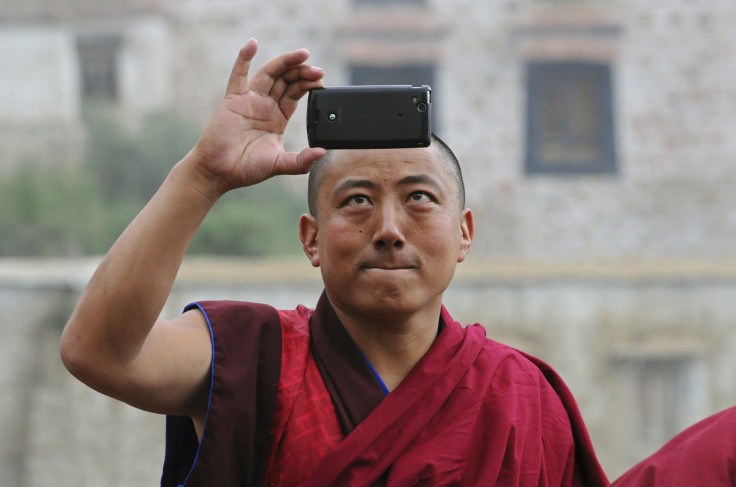China Telecom Unveils World's First Tibetan Language Bilingual Smartphone

Because Tibet continues to be a subject of controversy in China and around the world, China’s government often limits talking about the northwestern region. Now, in a seemingly unusual move, a Chinese state-owned telecommunications company has unveiled the world’s first dual Tibetan-Chinese language smartphone in the Tibetan capital of Lhasa.
According to tech news site Tech In Asia, the new smartphones were jointly created by China Telecom, one of the country’s biggest mobile telecommunications providers, Huawei, the country’s largest telecom equipment manufacturers, and Tibet University. A ceremony to reveal the product to the public was attended by several employees, teachers and students ahead of the phone’s official beginning of sales, starting Nov. 1.
The phone, the Huawei c8815, is the first of its kind, featuring dual language input and recognition, which could potentially connect millions of Tibetans online, especially those not able to read Chinese characters. According to state-run Xinhua News Agency, more than 80 percent of the Tibetan population live in remote areas, making communication extremely difficult. The phones are retailing for 990 yuan, which is about $160, and can be purchased within the Tibetan Autonomous Region.
According to the press release by China Telecom, customers will be able to play games and install software and receive national updates like severe weather warnings and government announcements in the bilingual format as well. The phone does not run on an Android interface, however, with China Telecom installing its own version of a user platform called Tianyi. It’s unclear if there will be any additional restrictions to web access beyond China’s usual censorship and limitations.
This unprecedented communication access for Tibetan natives comes as a surprise considering many believe Tibetan cultural traditions, like language and religion, are separatist and stray from China’s general "One China" motto. Tibetans on the other hand continue to be condemn the Chinese central government for marginalizing their culture and their people, making the launch of the Tibetan-language phone all the more surprising. In fact, earlier this year, four Tibetan university students were given jail time for protesting their schools reduction of Tibetan-language instruction.
Xinhua, however, does report that China’s central government has worked in coordination with Tibet’s local government and allocated more than 1 billion yuan in the technological application of Tibetan language office software, digital dictionaries, among other things, since 2008.
© Copyright IBTimes 2024. All rights reserved.












